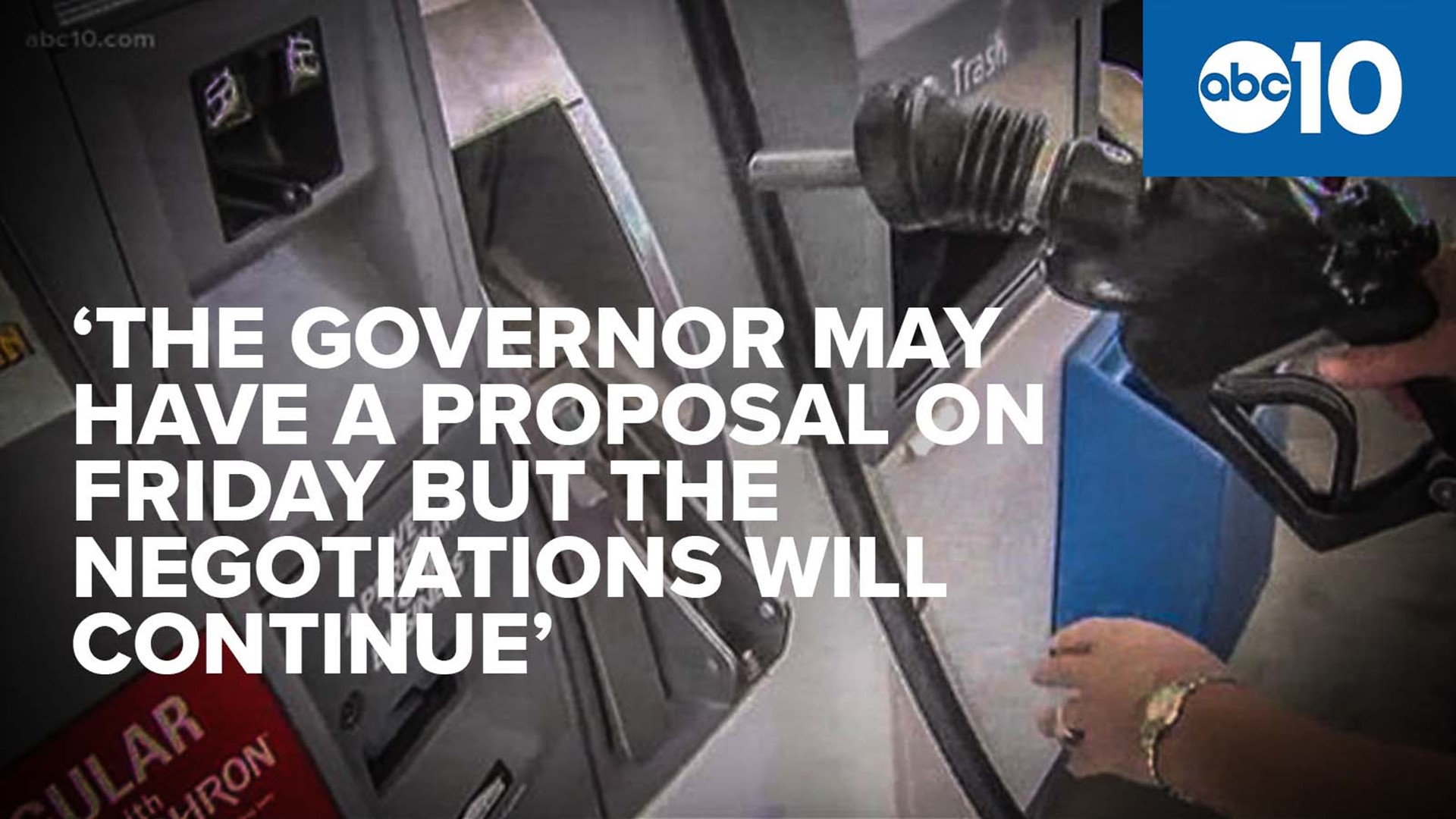SACRAMENTO, Calif. — Rent help, $400 checks to vehicle owners and even a boost to the state's minimum wage are possible as California maps out a plan to tackle inflation and the already high cost of living.
Governor Gavin Newsom announced an $18.1 billion inflation relief package on Thursday as part of his revised budget. It comes as inflation hits its highest rate in 40 years. Officials say that figure was driven in part by the coronavirus pandemic and Russia's war on Ukraine.
The lion's share of the funds, $11.5 billion, would go toward $400 checks meant to help eligible registered vehicle owners with the rising costs of gas. Those checks would be capped at two checks per person.
Officials with the Governor's office said the soonest people could receive the money is in September.
The plan does not include reducing the state's gas tax or delaying scheduled increases. The scheduled diesel tax increase could be delayed for 12 months.
► Save Money on Gas: Use our interactive map to find the lowest price near you.
$2.7 billion would go toward rent help for low income tenants who requested assistance before March 31, and $1.4 billion would go toward helping with past-due utility bills.
Lawmakers still need to approve his budget and the items could change under negotiations.
California's minimum wage could also be going up. If inflation rates hold, the minimum wage would increase to $15.50 per hour for all workers on Jan. 1, 2023, a move officials say is required by law when inflation exceeds 7%.
“We enacted the most comprehensive economic stimulus program in the nation last year, getting billions in immediate relief to millions of Californians. But many folks are still struggling, especially with high costs due to inflation, so we’re leveraging this historic surplus to get money back into the pockets of Californians,” Newsom said in a statement. “This inflation relief package will help offset the higher costs that Californians are facing right now and provide support to those still recovering from the pandemic.”
Other funds go toward a pause on the diesel sales tax, child care fee waivers for low-income families, three months of free public transit and up to $1,500 for hospital and skilled nursing facility workers.
WATCH ALSO:



















